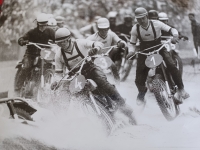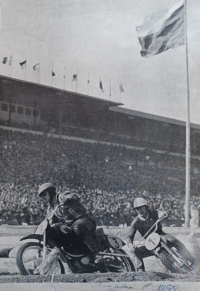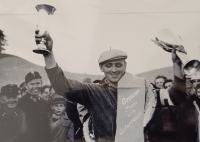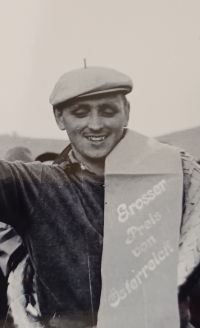If you want to accomplish something, you have to live for it

Download image
Miloslav Souček, Czechoslovak motocross legend, was born on January 2, 1931 in Pilsen. He spent his childhood in Stříbro, which had to be joined to Nazi Germany in October 1938. In the years 1939–1942, his father Antonín Souček was interned in the Sachsenhausen concentration camp. The witness was obliged to participate in the activities of the Jungvolk children’s Nazi organization at the German school. After 1945, he trained to be a car mechanic. He won his first motorcycle race in 1949, and was able to fully start racing in the Army Sports Club (later Dukla Prague). In 1956, he became a factory rider for the ESO Divišov brand, with which he won the fourth title of national champion and became a bronze medalist at the European Championship. In 1958, under the pretext of his father’s working-class origin, he was excluded from the national team, his return to the Communist Party helped. He later rejected the State Security´s offer to cooperate. He ended his career in 1963. In 1970 he resigned from the Communist Party. He faced persecution and inspections by the local Communist Party organization, his sons were not allowed to study. In the eighties, he contributed to the creation of international veteran races. The City of Stříbro recognized his merits for the development of local motocross with an Honorary Plaque. In 2021, he was nominated for the State Medal of Merit.




